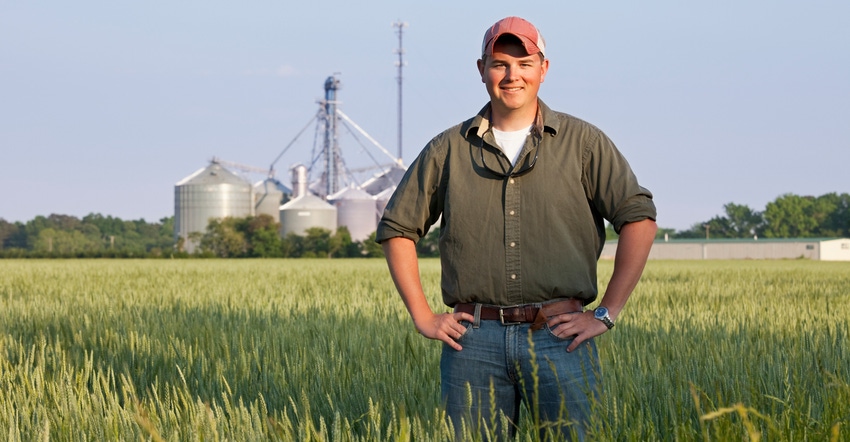
The late Larry Harper challenged young people to discuss important agricultural issues of the day. He believed in the power of communication, more precisely in the power of the written word.
Harper was the editor of Missouri Ruralist from 1976 to 1999. His influence on the state’s agricultural journalism industry continues in the form of an annual essay contest for Missouri FFA members.
Each year, members have the opportunity to compete in the Larry Harper Young Writers Essay Contest. This year more than 70 students addressed the topic, “What can be done to increase the number of beginning farmers and ranchers?” The top three essays were recognized at the Missouri State FFA Convention April 30 to May 1 in Sedalia, Mo.
The top three essays were:
1. Kierstin Wood, La Plata FFA chapter
2. Halley Marek, Salisbury FFA chapter
3. Trey Riley, St. James FFA chapter
Winning essay
Wood's winning essay follows:
Since the beginning of time, there has been the need to sustain life. Production agriculture has long been a means of providing food and fiber for a growing world population, and no one does it better than the American farmer and rancher. Today, more than ever, it is important to lay a foundation to encourage and assist the next generation of beginning farmers and ranchers helping them succeed.
When interviewing Drew Lock, Missouri State Farm Bureau board member and farmer, operating capital is the biggest barrier facing beginning farmers today. Without strong working capital, it is challenging for beginning farmers and ranchers to acquire land, equipment and needed inputs. There is always the added stress of weather and markets, but the COVID-19 global pandemic is adding a whole new dimension to rising Missouri farmland values, availability of inputs and equipment. The Farm Service Agency direct and guaranteed loan programs, “Beginner Farmer Programs,” are an important source of financial support during startup years. The expansion of financial support is necessary for beginning farmers and ranchers to succeed.
Growing up on a Missouri Century Farm where the sixth generation is becoming active in agriculture provides me with a different perspective. As an FFA member, my Supervised Agriculture Experience (SAE) includes cow-calf pairs and goats. Family farms provide beginning producers a support system when entering a career in production agriculture. Sadly, not everyone has an established operation supporting their entry into production agriculture.
According to the 2019 USDA Census of Agriculture Report, the average age of the Missouri farmer is 59.4 years. Research makes it clear many established farmers and ranchers will soon be considering retiring or greatly reducing their workload. When individuals have no relatives involved in their operations, their legacy of agriculture becomes questionable.
According to Tom Primmer, retired Missouri agriculture teacher, “Mentorships and low-interest guaranteed loans are invaluable to those wanting to establish careers in production agriculture. The establishment of mentorship programs between agriculture veterans and young people entering the agriculture industry can be a springboard of opportunity for all involved. The experienced agriculturalist can provide the first-time farmer and rancher with a wealth of knowledge from vast experience. There is the advantage of established assets like land, equipment, livestock and buildings that the beginning farmer and rancher may rent or lease from the mentor until able to build capital for their own investments.”
Mr. Lock shared with me the importance of networking. “It is not what you know, but who you know. Networking allows young people to gain a wealth of knowledge through involvement in organizations like FFA, Missouri Farm Bureau Young Farmers and Ranchers Program, Jr. Cattlemen's Association, 4-H, and commodity groups. Through mentorships and networking, people with similar interests are given opportunities to connect in meaningful ways to build successful agricultural careers.”
I believe FFA inspires students through SAEs to explore careers in production agriculture. SAEs provide students the opportunity to start small and keep the early investments affordable. Mr. Primmer encourages beginning farmers to “produce high-labor, high-return specialty crops, like popcorn, and expand into value-added marketing such as selling meat not the animal.”
Access to working capital, mentorships and networking are necessities to increase the number of beginning farmers and ranchers. Any opportunity building skills, knowledge and relationships will encourage and support students wanting to enter the industry of production agriculture. Young farmers and ranchers are the future when it comes to feeding a world with a rapidly growing population.
About the Author(s)
You May Also Like






